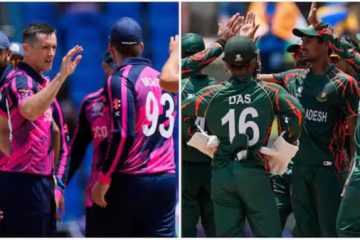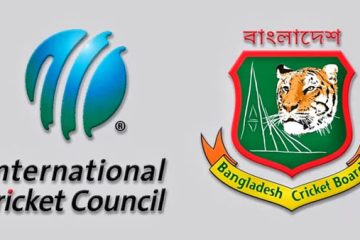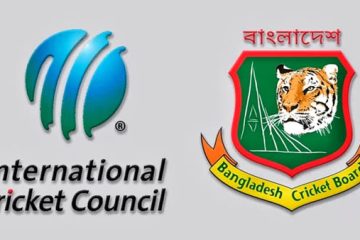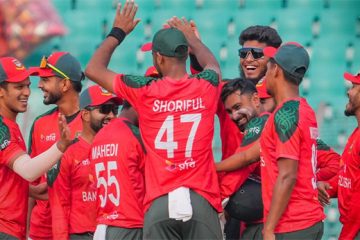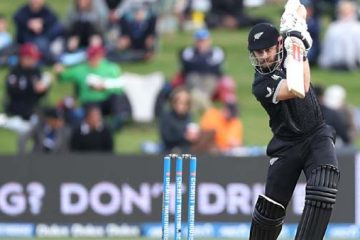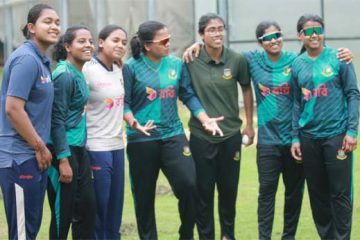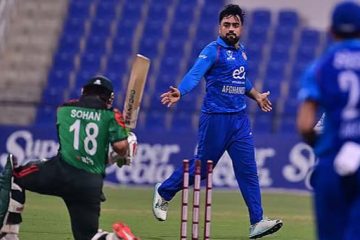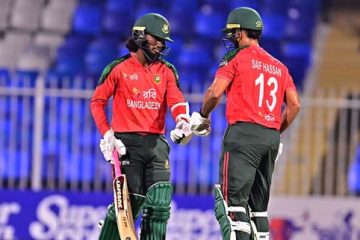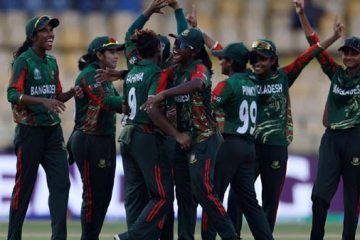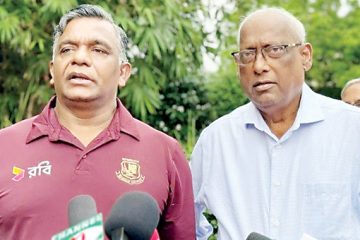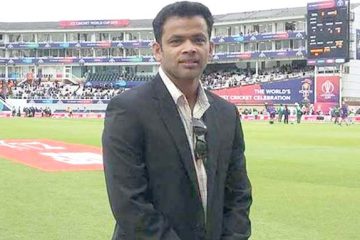Sri Lanka’s stunning victory over India in the World Twenty20 final underlines how success in hit-and-run cricket depends not on form, but on how a team performs over those three hours in the field. Mahendra Singh Dhoni’s Indians went into Sunday’s final in Dhaka as the only unbeaten team in the tournament, having coasted through four league matches and the semi-final against South Africa.
But they faltered when it mattered most, their vaunted batting line-up managing just 130-4 in 20 overs against a disciplined Sri Lankan attack after being sent in to bat on a sluggish pitch.
Sri Lanka raced past the modest target with 13 balls to spare, with Kumar Sangakkara—playing his last T20 international, like his long-time team-mate Mahela Jayawardene—leading the way with a glorious unbeaten 52.
The win sparked frenzied celebrations in the Sri Lankan dressing room, as jubilant players lifted Sangakkara and Jayawardene on their shoulders before doing a victory lap around the Sher-e-Bangla stadium.
Sri Lanka had every reason to celebrate. They finally broke the habit of coming unstuck in title-deciding matches to record their first victory in five major limited-overs finals over the last seven years.
The win was even sweeter for the two veterans. Jayawardene was captain when Sri Lanka lost the 50-over World Cup final to Australia in the Caribbean in 2007, and again when the West Indies won the 2012 World Twenty20 in Sri Lanka.
Sangakkara was at the helm during the 2009 World T20 final in England when Sri Lanka lost to Pakistan, and the World Cup in 2011 when Dhoni’s Indians won the title at home in Mumbai.
Sunday’s victory capped a successful three-month tour of Bangladesh in which Sri Lanka won the bilateral Test, one-day and T20 series against the hosts, and lifted the Asia Cup one-day title in March.
The squad, which was led in the last three games by Lasith Malinga after T20 captain Dinesh Chandimal opted out due to poor form, will return home on Tuesday richer by a million-dollar winning bonus announced by Sri Lanka Cricket before the final.
‘It was a long wait for a title, but playing in five finals also showed we were a very good side,’ Jayawardene said after the victory celebrations at the stadium.
‘This one means a lot to us. It’s a nice way to sign off for both Kumar and me in T20 international cricket. But we are not going anywhere, there are still Tests and one-dayers to play.’
India, meanwhile, failed in their bid to become the first team to hold all three major limited-overs titles, having won the 50-over World Cup in 2011 and the Champions Trophy last year.
Virat Kohli continued his stupendous batting form with a brilliant 77 off 58 balls that earned him the player of the tournament award for being the leading scorer with 319 runs.
But he found no support at the other end, with the usually-flamboyant Yuvraj Singh taking 21 deliveries to make a scratchy 11 that broke the tempo which Kohli had set.
This from the same left-hander who smashed six sixes in one Stuart Broad
over during India’s victorious campaign in the inaugural World T20 in South Africa in 2007. He was also the player of the tournament in the 2011 World Cup.
Singh’s inconsistent form, which has already seen the cancer survivor axed from the Test and one-day squad, could finally see the end of the gifted batsman’s international career.
‘It was an off-day for Yuvi,’ Dhoni admitted. ‘No one wants to perform badly in a final, but these sort of days come for the best of international athletes, not just cricketers.
‘One can say Sri Lanka played a near-perfect T20 game, like we had done in previous matches.’
The five editions of the World Twenty20 have now produced five different winners, with India’s success in 2007 followed by Pakistan (2009), England (2010), the West Indies in 2012, and now Sri Lanka.
The sixth event is scheduled to be held in India in 2016.
-With New Age input





